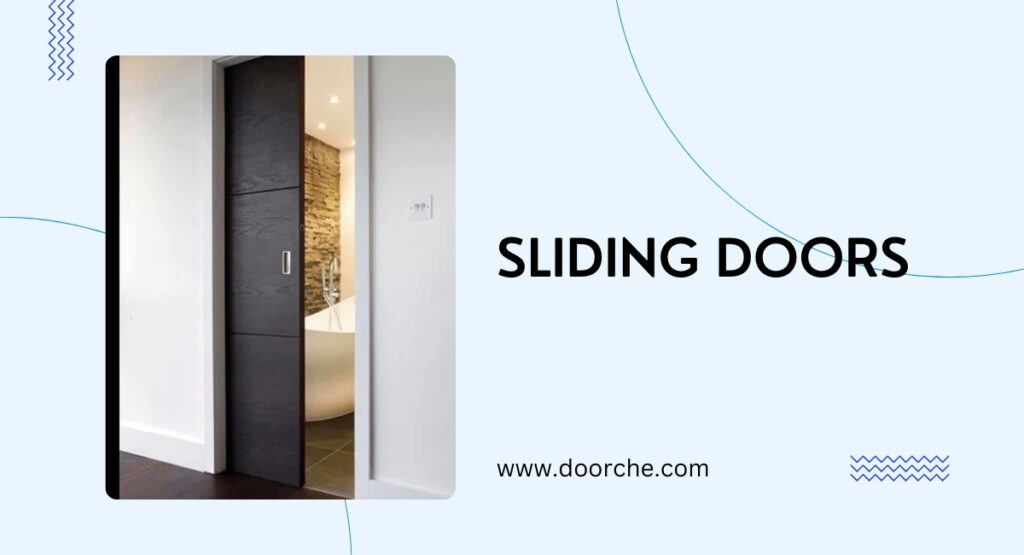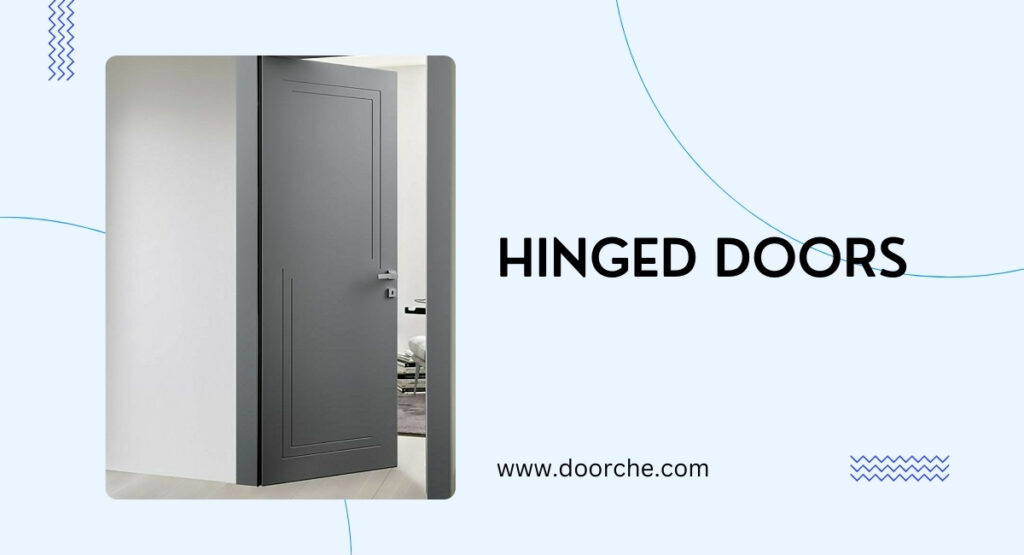Choosing the right type of door for your home is one of the key decisions in interior design and renovation. Doors not only play a crucial role in functionality and aesthetics but also impact energy efficiency and even security. Two of the most popular door types used in homes are sliding doors and hinged doors. Each of these options has its own advantages and disadvantages, and depending on the specific needs of your space, one may be a better fit than the other. In this article, we’ll provide a comprehensive overview of these two types of doors and guide you toward making the best decision.
Sliding Doors
What Are Sliding Doors?
Sliding doors are designed to move horizontally along a track, rather than opening inward or outward. These doors are commonly used in modern, small spaces, and in homes with patios, terraces, or balconies. A notable feature of sliding doors is the use of glass, which allows natural light to pass through and brighten the interior.

Advantages of Sliding Doors:
Space-Saving
One of the biggest advantages of sliding doors is their space-saving design. They do not require additional space for opening, making them ideal for rooms where space is limited. Compared to hinged doors, which take up internal or external space when opened, sliding doors move horizontally along the wall.
More Natural Light
Sliding doors often feature large glass panels, which allow more natural light to enter the home. This is especially beneficial for rooms that face an outdoor area, as the use of glass makes the interior feel brighter and more open.
Easy Access to Outdoor Spaces
Sliding doors are often used for entrances to patios, balconies, and terraces, providing easy access to the outdoor areas. Their smooth movement along the track makes them convenient for daily use and high foot traffic.
Disadvantages of Sliding Doors:
Need for Regular Cleaning
One downside of sliding doors is that their tracks tend to accumulate dust and dirt, requiring regular cleaning. If the tracks are not properly maintained, the door’s movement may become less smooth.
Lower Insulation
Due to the use of glass and the gaps between the door and the frame, sliding doors may not provide the same level of insulation as hinged doors. This can lead to energy loss during hot or cold seasons unless the sliding doors are equipped with more advanced insulation technology.
Less Security
Sliding doors, especially those with large glass panels, may offer less security than hinged doors. However, using reinforced glass and strong locking mechanisms can help mitigate this issue.
Hinged Doors
What Are Hinged Doors?
Hinged doors are the traditional type of doors that are attached to a door frame with hinges and swing open either inward or outward. These doors have been widely used in homes for centuries and come in various designs and materials.

Advantages of Hinged Doors:
Better Insulation
Hinged doors typically provide better insulation than sliding doors due to their tighter seals and sturdier construction. This feature helps maintain indoor temperatures more effectively, reducing energy loss during cold or hot weather. Additionally, hinged doors can be made from materials that offer extra layers of insulation.
Higher Security
Thanks to their solid construction and stronger locks, hinged doors generally offer better security compared to sliding doors. They can be equipped with multi-point locking systems and electronic locks, which significantly enhance the level of security.
Variety in Design
Hinged doors are available in a wide range of materials, including wood, metal, glass, and combinations of different materials. This variety allows you to choose doors that match the style and décor of your home.
Disadvantages of Hinged Doors
More Space Required for Opening
One of the main drawbacks of hinged doors is the amount of space they need for opening and closing. This can be an issue in small spaces, especially when the door swings inward and takes up floor space.
Traditional Style
Hinged doors generally have a more traditional look, which might not suit homes with ultra-modern designs. However, there are modern designs of hinged doors available that can alleviate this issue to some extent.
Final Comparison: Which Option Is Better?
The choice between sliding and hinged doors ultimately depends on your specific needs. If space is limited and you want to maximize the available room, sliding doors may be the better option. They also provide easier access to outdoor spaces and allow more natural light into your home. On the other hand, if security and insulation are more important to you, hinged doors, with their stronger construction and tighter seals, maybe the right choice.
Additionally, the design and style of your home play a crucial role in this decision. If you are looking for a minimalist and modern look, sliding doors might be more appealing. However, if you prefer a classic or versatile design, hinged doors offer a broader range of styles and materials.
Conclusion
In the end, the choice between sliding and hinged doors depends on various factors such as available space, insulation needs, security concerns, and your home’s overall design style. Both types of doors offer unique advantages that can be tailored to your home’s specific requirements. It’s recommended to carefully evaluate your needs and, if possible, consult with experts to make the best choice for your home.
